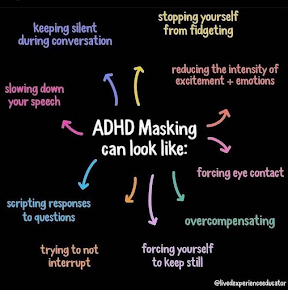Reflection on History of Disability
In class on February 14th, we spent Valentine's Day morning learning about the history of disability in America and what life was like for these people in the past 100 years. We first watched the documentary "Suffer the Little Children" that aired in 1968. After the documentary, we were able to listen to a presentation given by Dr. Bruce Kieling, the executive director of the UTHSC Center for Developmental Disabilities, on the history of disability. Both the documentary and the presentation really opened my eyes to the cruelties this population faced not so long ago. While this was very hard to watch/process, it was crucial for me to see as a future OT practitioner.
Prior to this documentary and presentation, I had no idea just how horrible life in the United States was for a person with a disability. Living in modern day America, I have always been around people living with an intellectual or physical disability; rather this be in elementary through high school, college, church, or work. Because this has been the norm for all of my life, I have always thought the days people with a disability being treated as outcasts took place hundreds of years ago; I had no clue these barbaric acts were committed just as little as 30 years ago. "Suffer the Little Children" painted a vivid picture of just how dangerous it was to be a person with a disability. Institutions such as Penhurst were up and running all throughout the country and while each resident suffered; many, if not all, Americans turned a blind eye. It wasn’t until this documentary came out that people finally began to speak out about these horrific crimes taking place at these institutions. Dr. Kieling's presentation reinforced the idea that many Americans treated the disabled as a problem they could just whisk away, and it wasn't till the 1970's when this finally started to change.
"Out of sight out of mind" is a quote that came to mind after this class session; It is painful to know that a whole demographic of people was treated as such. Somehow, even parents were able to send their children away to these institutions because of the stigma of what having a disabled child meant, or possibly for the fear of not being able to care for them. It is truly hard for me to wrap my head around some of the ideologies people carried towards people with a disability. It was a common thing to think that being disabled made one more prone to commit crimes (feeble-minded) and that they deserved to be whisked away from society in order to protect images or keep face within social hierarchies. An example of this would be the devastating story of Rosemary Kennedy; who was hidden from the public in order to protect her father's political status. Back then, no amount of money or power could help these children living with a disability. It was not until the airing of Bill Baldini's "Suffer the Little Children" when this stigma finally began to change. By the 1980's all of these inhumane institutions were permanently shut down and thankfully medical professionals and families learned how to properly care for these people and in turn they flourished.
I think knowing the history of disability within America is so important for any person pursuing a career in the medical field, but especially for Occupational Therapists. Going forward, I will use this information to push myself to be the strongest advocate for anyone with a disability and be a change agent to keep pushing for better care, equal rights, and inclusivity.


Comments
Post a Comment